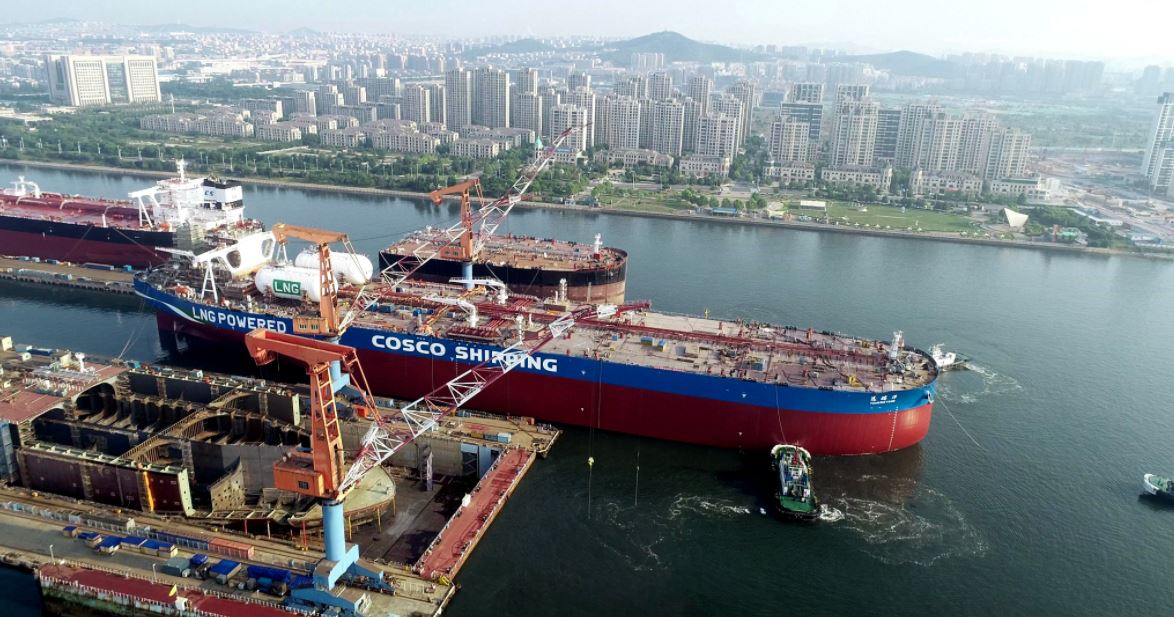
COSCO Shipping Energy invests $449M in methanol dual-fuel tankers
SHANGHAI : COSCO Shipping Energy Transportation, has recently finalized significant shipbuilding agreements, securing contracts for the construction of six new tankers valued at a total of $449 million.
As informed, this move represents a strategic initiative by the company to bolster its fleet and contribute to the changing landscape of environmentally conscious shipping.
Hainan COSCO Shipping Energy, a subsidiary of China COSCO Shipping Energy, formalized these contracts in collaboration with Yangzhou COSCO Shipping Heavy Industry. The agreements specifically pertain to the construction of three Aframax-type crude oil tankers with a deadweight tonnage (dwt) of 114,200 each, amounting to a total investment of $289 million.
What distinguishes these tankers is their innovative design as green methanol dual-fuel crude oil carriers, indicating their ability to be powered by a combination of traditional fuels and environmentally friendly methanol. This dual-fuel capability represents a stride toward cleaner energy solutions, aligning with the global emphasis on reducing carbon emissions in the shipping sector.
It is learnt that, the adoption of methanol as a fuel source mirrors a broader trend in the shipping industry, which is increasingly focusing on alternative and sustainable energy options. Methanol is gaining traction as a viable solution due to its lower environmental impact compared to conventional fuels.
Beyond the Aframax tankers, China COSCO Shipping Energy has expanded its collaboration with Dalian COSCO Shipping Heavy Industry, including the construction of a 49,900 dwt MR-type oil tanker valued at $50 million. This demonstrates a diverse portfolio of vessels within the company’s strategic plans.
Moreover, the collaboration involves an order for two 64,900 dwt Panamax-type crude oil tankers, with a total investment of $130 million. These Panamax carriers are designed to be methanol-ready, showcasing foresight in anticipating future trends. “Methanol-ready” implies that these vessels can be easily adapted for methanol-based operations at a later stage, aligning with the company’s commitment to flexibility and sustainability.

